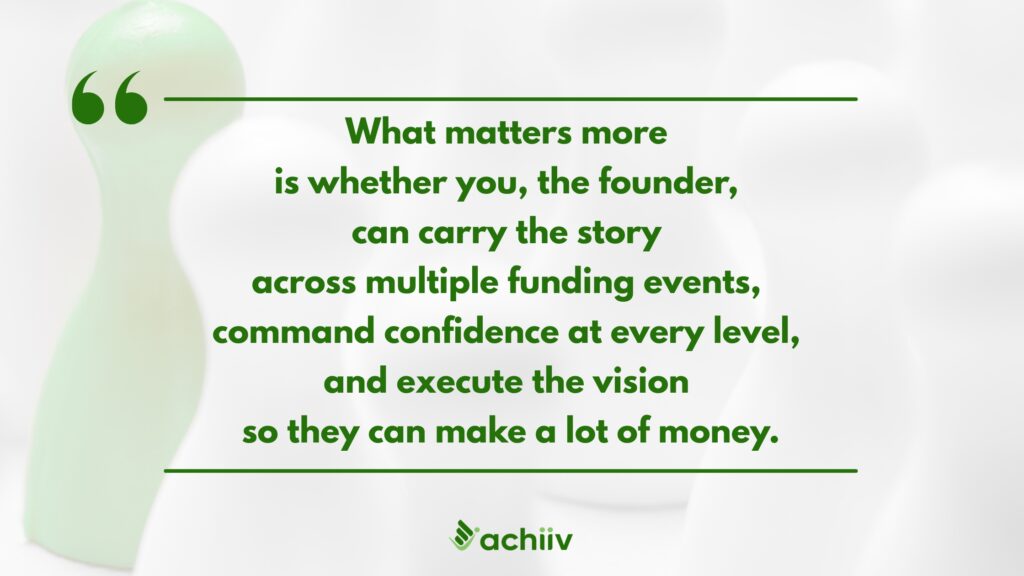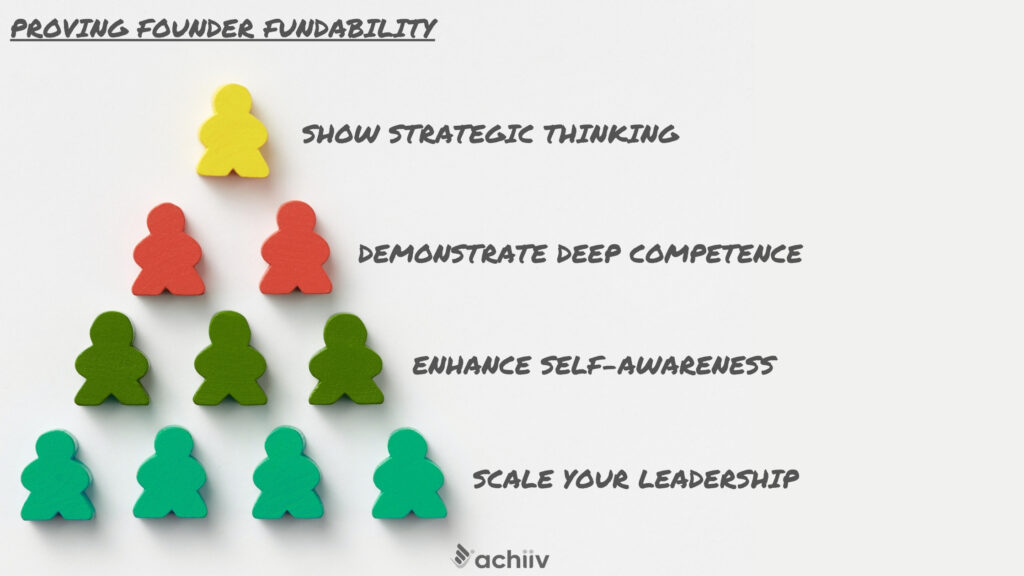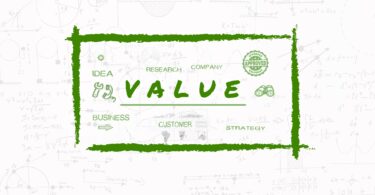A couple of weeks ago, I was talking to an experienced venture capitalist. During the chat, she made an offhand comment that has stuck permanently in my mind. “Startups are the products that I am looking to sell to my LP’s (limited partners, or the investors in the VC fund)”, she said. I am paraphrasing a bit, but that was the gist.
We all know that VC’s, and institutional investors broadly (i.e., those that are investing other people’s money in startups), are in the business to make money. But few of us have connected the dots to realize that if VC’s are buying investments in startups, then early stage founders are by definition the product – because at the earliest stages, there’s little more than a visionary founder with a promising idea.
Why Investors Bet on Founders, Not Just Ideas
Institutional funds like VC funds are set up with a defined fund corpus (e.g. $50 million). They raise money from wealthy individuals or institutions like pension funds. They are expected to generate very high returns ( 30%+ annually) over the fund life of 10 years, to compensate for the high risk of startup investing.
This structure constrains them to a narrow playbook: invest in only 10-20 companies per fund, and only in companies that each have a decent probability of generating astronomical returns that can cover the whole fund.
But at this early stage, there’s little evidence to support the story – no metrics, no customers, even no products. So investors overweight the only concrete thing available to them – you, the founder. They are judging your ability to bring your idea to life, your credibility as a leader to future investors, customers and employees, and your resilience in handling big setbacks that will definitely arise.
If they can’t sell you as credible, fundable, and high-upside to the next buyer in the chain, the whole investment breaks. Your scientific brilliance matters. What matters more is whether you, the founder, can carry the story across multiple funding events, command confidence at every level, and execute the vision so they can make a lot of money.
What Makes a Founder Worth Funding
In your earliest rounds, investors aren’t exclusively evaluating the idea on its merits, or even your merits as a founder. They’re doing a sophisticated, almost unconscious evaluation of your capacity to build this specific thing you’re proposing, to be a home run. For an industrial innovation, for example, they’ll assess how you frame regulatory timing, outline a credible path to early pilots, and build capital deployment milestones that make sense.

To maximize your founder value, focus on specific founder-idea fit issues that will amplify positive signals to investors:
Prove How You Think When the Stakes Are High
Initially, all the value of the startup is inside your head. As an investor, I’m trying to tease out the big things outside your control that could impact your outcomes, and how you’re likely to respond to them.
The only thing I can probe now is the style, rigor and discipline of your thinking. I test those by throwing what-if scenarios at you, or asking you to describe good, bad and really ugly scenarios. These pretend plays help me form a mental picture of how you exercise judgment, how data-driven your thinking is, and how you deal with uncertainty both objectively and personally. These discussions are investor diligence. Not just a friendly chat.
Hanna Wu, for example, demonstrated excellent judgment in developing pre-emptive strategies well before a near-calamity hit the market. That’s the kind of thinking investors want to see.
Charisma Gets You In But Competence Gets You Funded
Charisma and burning enthusiasm are only the price of entry. This is because investors know that founders who aren’t passionate about their thing, but are only financially motivated, rarely make it.
But energy only gets you in the door. The actual test is how well you understand the nuts and bolts of your business. It’s virtually impossible to prepare for every single question investors throw at you. I’ve been in many conversations where the questions veered from customer segments to detailed operating metrics instantaneously. I used to play a game to see if I could predict at least a majority of investor questions correctly. Failed every time.
If you’re not deep in the weeds thinking about your business, no amount of preparation will help you address these kinds of questions. You’ll always come to the point where you’re scraping the bottom of your available knowledge. That’s when your gut instincts about this space and your ability to think kick in – and investors can tell if you’re more flash or substance.
Strategic Self-Awareness = Better Decisions, Faster Pivots
Investors want to see if you know your leadership strengths and weaknesses. Every investor tests for this. If you don’t have the basic awareness to “hire for your weakness”, you’ve got bigger problems than I can solve.
But here’s another angle: in almost every startup pivot I’ve seen, one ingredient played a decisive role – what the founder cared about the most or had the strongest intuition to tackle.
These are not theoretical issues – you’ll come to many forks in the road where two options look equally good or equally challenging. The tie breaker will be your personality, background, and personal preference.
Understanding the total package you bring to the table, and how that influences the path you’re choosing, is a superpower many founders ignore. It’s not only what investors care about – it’s also what you care about.

Can You Grow as Fast as Your Startup Needs?
You already know the scalability of your business matters – your product, your market, your ability to deliver. But one scalability factor most founders miss is their own ability to scale their leadership.
Can you shift fluently from technical detail to commercial logic as the business grows? Do you understand your business levers? Can you restrain your impulse to jump into action the moment a product issue shows up? Can you set goals for a sales team, and not just make the sale?
It’s hard for founders to transition from maker to CEO to a leader. That’s why a significant percentage of founder CEO’s get replaced in the later rounds. If a founder as brilliant as Steve Jobs wasn’t immune, then it’s smart for you to not only learn fast, but also be emotionally ready to hand over the reins at the right time. This maturity is a huge plus for investors who really don’t want to engage in CEO drama if and when a change becomes necessary.
A Simple Founder Operating System
This looks hard, especially when your plate is already overflowing. So I put together a four-part Founder Operating System to integrate simple practices into your routine.
#1 – Anchor Your Strategy – The “Need to Believe” Memo
When I worked in consulting, I had a terrific manager who started each project asking “What do we need to believe for this project to succeed”. We drilled down to the 3-4 issues that would make or break these high-stakes engagements.
It’s an excellent practice that can serve you really well as you build your startup. Keep a one-page memo that lays out the top 3-5 things that must be true for your business to succeed, e.g., assumptions about:
- Your customer, the problem, its urgency
- Product – features, packaging, price
- Ability to deliver
- Externalities – regulatory approvals, dependencies, supply chain
Give a confidence rating for each, and a brief note on how you’re testing for it.
#2 – Enhance Business Fluency: The Knowledge Audit
There are usually 5-7 areas investors care deeply about, and you need to have a strong grasp of, as the CEO – for example, unit economics, risks, regulatory pathways, etc.
For each of these areas, capture the top 5-6 points you need to know, using an AI or your past investor meeting notes (e.g., CAC, LTV, sales cycle time). Rate your knowledge on each. Then build up weak areas step by step, starting with what you hate the most or are least comfortable with. Get your team in on it and gamify to make it more fun.
#3 – Up Your Awareness Level: The Founder Owner’s Manual
Early in my career, one of my managers had us all write a one page “owners’ manual” for how we liked to work. Then she made us share it so we would be more effective in our dealings with each other. You can use it to develop a deeper understanding of yourself, and of your team, covering, for example:
- Motivations and biases
- Process for taking decisions
- Biggest operating values
- Strengths and spikes
- Weaknesses and what you delegate
This awareness gives you greater behavioral flexibility, and highlights emerging dangers before you drive your startup into the ground.
#4 – Pressure Test Like a Pro: The Challenger Session
To accelerate growth, have challenge sessions with a trusted advisor with no stake in your business to pressure test one key decision or direction. Schedule one every few weeks and do it with an actual decision or a hypothetical one. Walk through the context, your decision, rationale, what you expect to happen, potential downside risk and how you plan to mitigate. Make sure they have the integrity to hold your feet to the fire. You’ll build comfort with discomfort and broaden your operating range.
So, go ahead and do an honest evaluation of how you stack up as a founder. How do you stack up as the “product” your investor is shopping for? What one area would pay off the most to improve?







